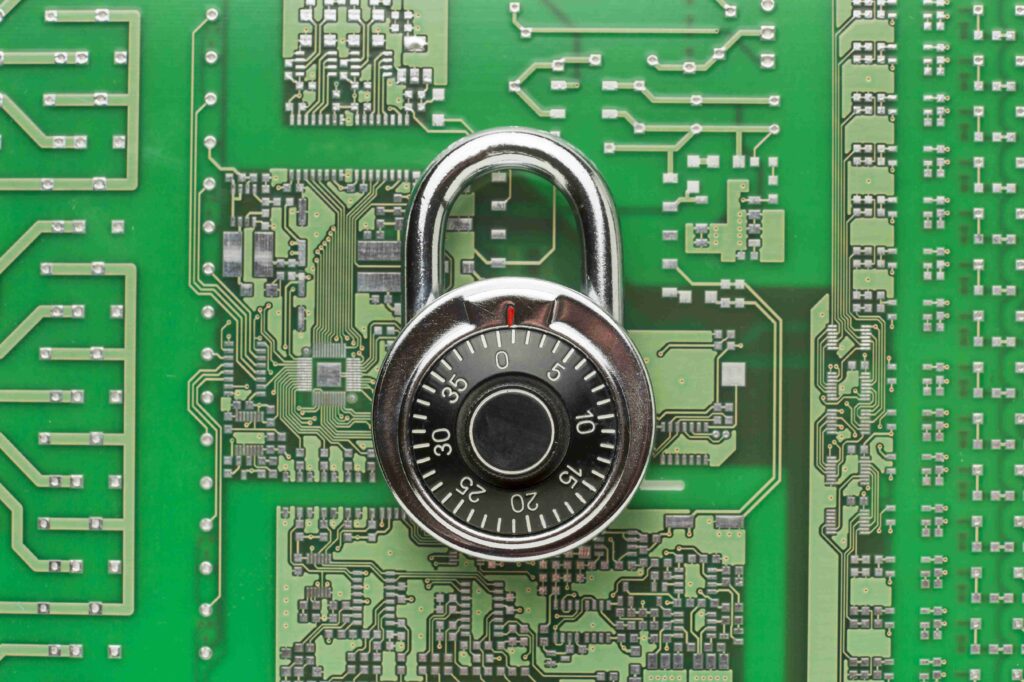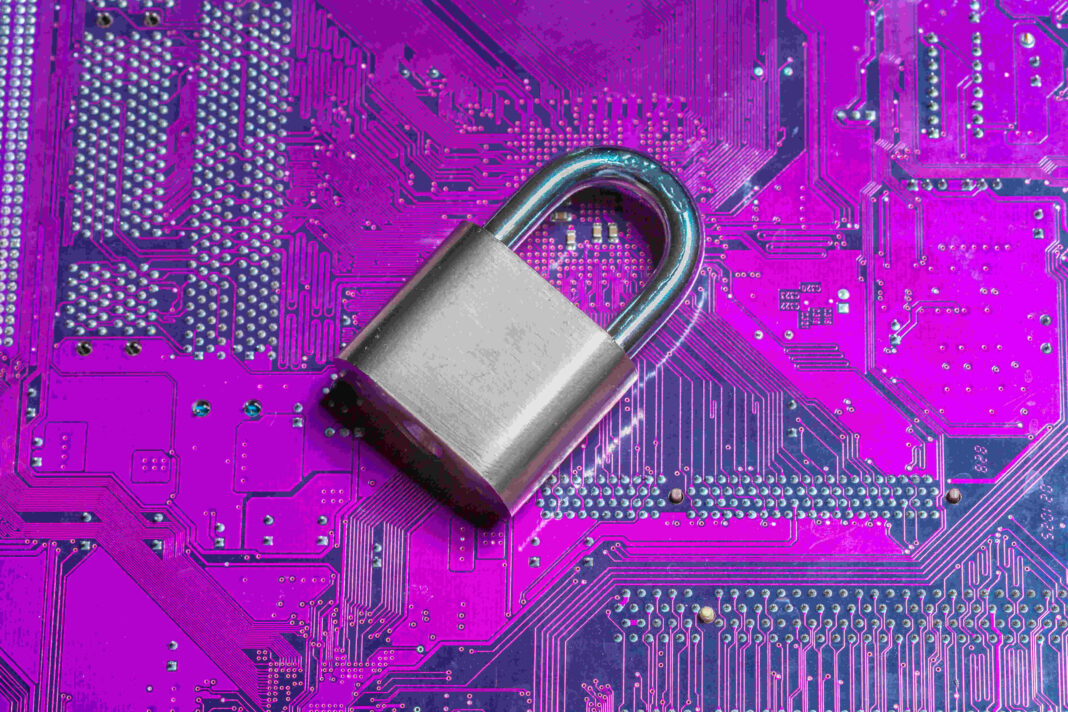In the realm of cybersecurity, encryption stands as one of the most critical tools for protecting sensitive information. It serves as the backbone of data security, ensuring that information remains confidential and inaccessible to unauthorized parties. Whether it’s personal data, financial transactions, or government communications, encryption plays a pivotal role in safeguarding digital interactions. This article delves into the importance of encryption in cybersecurity, its mechanisms, applications, challenges, and future prospects. By the end, you’ll have a comprehensive understanding of how encryption works and why it’s indispensable in the fight against cyber threats.

What is Encryption?
Definition and Basic Concepts
Encryption is the process of converting plain text into a coded format, known as ciphertext, to prevent unauthorized access. This transformation is achieved using algorithms and cryptographic keys. Only those with the correct key can decrypt the information and revert it to its original form.
How Encryption Works
Encryption relies on two primary components: algorithms and keys. Algorithms are mathematical formulas that dictate how the data is transformed, while keys are unique strings of characters that lock or unlock the encrypted data. There are two main types of encryption: symmetric and asymmetric.
- Symmetric Encryption: Uses the same key for both encryption and decryption. It’s fast and efficient but requires secure key distribution.
- Asymmetric Encryption: Uses a pair of keys—a public key for encryption and a private key for decryption. It’s more secure but computationally intensive.
Historical Context
Encryption is not a modern invention. Its roots trace back to ancient civilizations, where techniques like the Caesar cipher were used to protect military communications. Over time, encryption methods have evolved, becoming more sophisticated to counter increasingly complex threats.
The Importance of Encryption in Cybersecurity
Protecting Data Confidentiality
Encryption ensures that sensitive information, such as personal details, financial records, and corporate secrets, remains confidential. Even if data is intercepted, it remains unreadable without the decryption key.
Ensuring Data Integrity
Encryption also plays a role in maintaining data integrity. By using cryptographic hashes, organizations can verify that data has not been altered during transmission. This is crucial for preventing tampering and ensuring trust in digital communications.
Enabling Secure Communication
From email to instant messaging, encryption enables secure communication channels. Protocols like SSL/TLS encrypt data transmitted over the internet, protecting it from eavesdroppers and man-in-the-middle attacks.
Compliance with Regulations
Many industries are subject to strict data protection regulations, such as GDPR, HIPAA, and PCI-DSS. Encryption helps organizations comply with these regulations by safeguarding sensitive data and avoiding hefty fines.
Types of Encryption Algorithm
Symmetric Key Algorithms
Symmetric encryption algorithms, such as AES (Advanced Encryption Standard) and DES (Data Encryption Standard), are widely used for their speed and efficiency. They are ideal for encrypting large volumes of data but require secure key management.
Asymmetric Key Algorithms
Asymmetric algorithms, like RSA (Rivest-Shamir-Adleman) and ECC (Elliptic Curve Cryptography), use a pair of keys for encryption and decryption. They are more secure but slower, making them suitable for encrypting smaller amounts of data, such as digital signatures.
Hash Functions
Hash functions, such as SHA-256 (Secure Hash Algorithm), are used to verify data integrity. They generate a fixed-size hash value from input data, which is unique to that data. Any alteration to the data results in a different hash value, making it easy to detect tampering.
Applications of Encryption in Cybersecurity
Secure Online Transactions
Encryption is the foundation of secure online transactions. When you make a purchase or log into your bank account, encryption ensures that your financial information is protected from cybercriminals.
Email Encryption
Email encryption protects the content of emails from being read by unauthorized parties. Protocols like PGP (Pretty Good Privacy) and S/MIME (Secure/Multipurpose Internet Mail Extensions) are commonly used for this purpose.
Cloud Security
As more organizations move their data to the cloud, encryption has become essential for protecting sensitive information stored on remote servers. Cloud service providers often use encryption to secure data at rest and in transit.
Virtual Private Networks (VPNs)
VPNs use encryption to create secure connections over the internet. This allows users to browse the web anonymously and access restricted content without fear of surveillance or data interception.
Challenges in Implementing Encryption
Key Management
One of the biggest challenges in encryption is key management. Safeguarding encryption keys is crucial, as losing or compromising them can render encrypted data inaccessible or vulnerable to attacks.
Performance Overhead
Encryption can introduce performance overhead, especially for large-scale systems. Balancing security and performance is a constant challenge for organizations.
Quantum Computing Threats
The rise of quantum computing poses a potential threat to current encryption methods. Quantum computers could theoretically break widely used encryption algorithms, necessitating the development of quantum-resistant cryptography.
User Experience
Encryption can sometimes complicate user experience, particularly when it involves complex key management or authentication processes. Striking a balance between security and usability is essential.
The Future of Encryption in Cybersecurity
Post-Quantum Cryptography
Researchers are actively working on developing post-quantum cryptographic algorithms that can withstand the power of quantum computers. These algorithms aim to ensure long-term security in a quantum computing era.
Homomorphic Encryption
Homomorphic encryption allows computations to be performed on encrypted data without decrypting it first. This emerging technology has the potential to revolutionize data privacy, particularly in fields like healthcare and finance.
Blockchain and Encryption
Blockchain technology relies heavily on encryption to secure transactions and maintain the integrity of the distributed ledger. As blockchain adoption grows, so too will the role of encryption in ensuring its security.
Increased Adoption of End-to-End Encryption
End-to-end encryption, which ensures that only the communicating parties can read the messages, is becoming increasingly popular. Messaging apps like WhatsApp and Signal use this technology to protect user privacy.
Frequently Asked Questions (FAQs)
1. What is the difference between encryption and hashing?
Encryption is a two-way process that converts plain text into ciphertext and back again, while hashing is a one-way process that generates a fixed-size hash value from input data. Hashing is primarily used for data integrity verification.
2. Can encrypted data be hacked?
While encryption is highly secure, it is not foolproof. Weak encryption algorithms, poor key management, and advances in computing power (e.g., quantum computing) can potentially compromise encrypted data.
3. Is encryption necessary for small businesses?
Yes, encryption is essential for businesses of all sizes. Small businesses are often targeted by cybercriminals due to their perceived lack of robust security measures. Encryption helps protect sensitive data and build customer trust.
4. How does encryption protect against ransomware?
Encryption can protect data from being accessed by unauthorized parties, but it does not prevent ransomware attacks. However, regular data backups and strong encryption practices can mitigate the impact of ransomware.
5. What is end-to-end encryption?
End-to-end encryption ensures that only the sender and recipient can read the messages. Even the service provider cannot access the encrypted data, providing a high level of privacy and security.
Conclusion
Encryption is a cornerstone of modern cybersecurity, providing essential protection for sensitive data and secure communication channels. From safeguarding online transactions to enabling secure cloud storage, encryption plays a vital role in defending against cyber threats. However, challenges such as key management, performance overhead, and the rise of quantum computing highlight the need for ongoing innovation in encryption technologies. As the digital landscape continues to evolve, encryption will remain a critical tool for ensuring data privacy and security. By understanding its mechanisms and applications, individuals and organizations can better protect themselves in an increasingly interconnected world.

